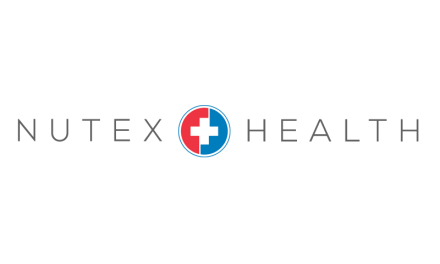
Propeller Health looking to expand beyond respiratory medicine

As it announced raising $20 million last month, Propeller Health said it’s looking at expanding into therapeutic areas beyond respiratory medicine.
The Madison-based company has been focused on providing digital sensors to inhalers to help patients and their providers better manage asthma and chronic obstructive pulmonary disease.
It recently inked a deal with Aptar Pharma, which participated in the latest fundraising, to develop additional digital medicines.
“For us, it’s a big step forward,” CEO David Van Sickle said in a recent interview with Wisconsin Health News. Edited excerpts are below.
WHN: What new therapeutic areas are you considering?
DVS: Probably most important for us immediately are the injectable medicines that are used to manage patients who have severe asthma. For us, it’s really important that we provide connectivity and are able to collect medication use to build a comprehensive, digital experience across the whole continuum of asthma. That’s where we’ll go first. Then beyond that, it’s a pretty small step into some other areas, whether it’s migraines, diabetes or what have you where injectable medicines are fairly widely used. Behind that, there’s a whole bunch of different parts of the market that we’re looking at, particularly areas where there’s lots of similar medicines like an undifferentiated therapeutic market and/or a still high unmet medical need. In the future, we think that a lot of these electronics are going to be directly connected or built into the medicine. So these new integrated, connected medicines will really be reviewed by the Food and Drug Administration as new entities, given new codes and stuff, so they’ll become like line extensions for big brands. For us, to take that first step in building add-ons there and, down the road, integrative electronics is a really important part of how we’re looking to grow the business.
WHN: What needs to happen next to grow the field of digital therapeutics?
DVS: There’s still lots of work to get these into patient hands, really to figure out ways that they can benefit people in daily life, help physicians and patients put them to the most effective use. Another part of what we’re going to spend a lot of time and energy on is figuring out how through pharmacy benefit managers, through pharmacies, payers, provider systems to get digital medicines into broader adoption and use. We have a lot of work ahead of us. I think we’re in the early days, if you look at the overall portion of the market that is using something like that today. So a lot of attention is going there out of the fundraising as well.
WHN: Propeller Health’s work in Louisville, Ky., on asthma has generated national attention. What’s resulted from Propeller’s work?
DVS: We started several years ago, really driven by an initiative that Mayor Greg Fischer brought to the office to essentially look for ways in which data, generally speaking, could be used to sharpen and strengthen municipal decision-making. We ended up getting a program together with the support of the Robert Wood Johnson Foundation and a couple of other nonprofits that enrolled a pretty significant fraction of the patients in the Louisville metro who had asthma and COPD. It grew to be a pretty remarkable kind of public-private collaboration. I think there was more than a dozen different organizations together in trying to envision how residents of the city with technology could not only better manage their own asthma but also contribute data in an aggregated, identified way to the program so that the public health office could use that to figure out when, where and among whom asthma was a problem in the community and then how might they think about where to target or evaluate interventions to try and reduce that burden.
We just published a paper a couple of months back in the journal of Health Affairs that summarized some of the early results, both clinical and on the public health side. One of the more interesting things, I think, is the extent to which we noticed pretty significant increases in the burden of respiratory disease at lower rates of air pollutants than currently established by national guidelines. What we’re showing is that when you make visible some of these signals about the day-to-day impact asthma can have on a population, you’re able to see new ways in which you might intervene, whether that’s through like breeding and trying to plant trees to protect people from poor air quality. Or to improve air quality or traffic calming interventions to try and reroute out heavy commercial traffic from areas where there’s schools or other folks who might be at risk of having symptoms. So the city’s been a great partner there and has really led the country and beyond in thinking about how data from these types of citizen-powered result programs can be actually put to use in day-to-day governance and public health practice.
WHN: Last year, your company became one of the four founding organizations behind the Digital Therapeutics Alliance. What’s that Alliance accomplished so far?
DVS: We teamed up with a bunch of different organizations, Akili, Voluntis and a couple of others, to put that organization together. It’s led by a woman named Megan Coder, who’s really done nice work over the past few months to expand the organization to include some big payers, some pharma and a whole bunch of other startups working in digital therapeutics. I would say that the biggest contribution that the organization has made so far is to really help start to research and define exactly what is meant by the term digital therapeutics and how the organization can support startups in bringing this to the attention of payers that will hopefully, ultimately be the ones helping get that into their member and patient hands but also helping those organizations work more effectively and efficiently with regulators to get their products through and approved so they can go to market. It’s early days for that organization, but I think they’ve done some nice work on both the taxonomy and definitional aspects of it, connecting the startup community in digital therapeutics with the FDA and making sure that the organizations are developing really robust, clinically validated software/digital medicine tools that meet the expectations of the market and the agency. And then thinking about how to support the organizations and getting them into commercial adoption, whether that’s through reimbursement strategies or other approaches.
This article first appeared in the Wisconsin Health News daily email newsletter. Sign up for your free trial here.





